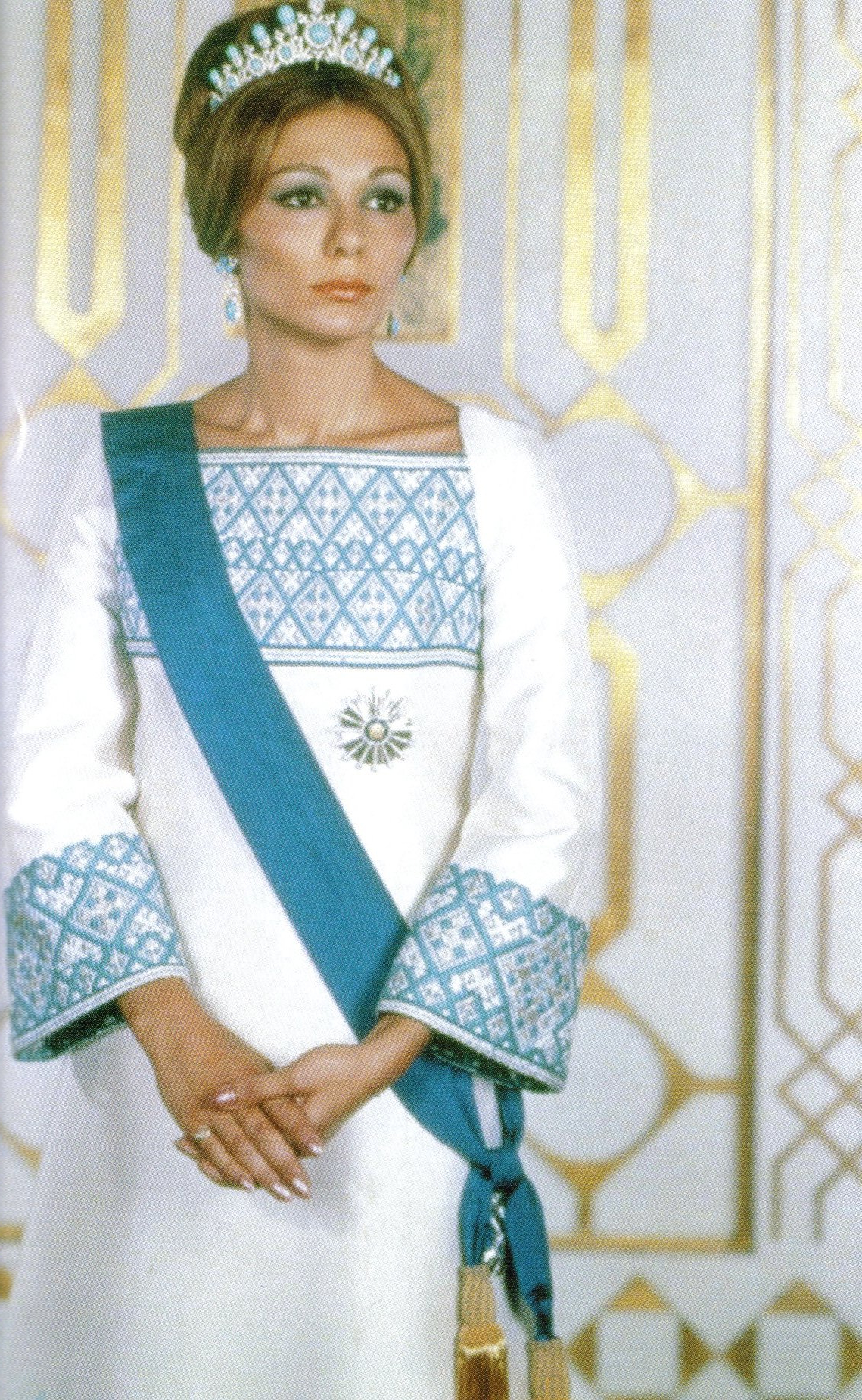Interview: Farah Pahlavi Recalls 30 Years In Exile http://www.rferl.org/content/Interview_Farah_Pahlavi_Recalls_30_Years_In_Exile/2111354.html, Radio Free Europe, (July 27, 2010).
Interviews
Farah Pahlavi: Citations en anglais
Page 91
Publications, An Enduring Love: My Life with the Shah (2004)
Interview: Farah Pahlavi Recalls 30 Years In Exile http://www.rferl.org/content/Interview_Farah_Pahlavi_Recalls_30_Years_In_Exile/2111354.html, Radio Free Europe, (July 27, 2010).
Interviews
Page 99
Publications, An Enduring Love: My Life with the Shah (2004)
Page 76
Publications, An Enduring Love: My Life with the Shah (2004)
Former queen of Iran on assembling Tehran's art collection http://www.guardian.co.uk/world/2012/aug/01/queen-iran-art-collection, The Guardian, (August 1, 2012).
Interviews
Former queen of Iran on assembling Tehran's art collection http://www.guardian.co.uk/world/2012/aug/01/queen-iran-art-collection, The Guardian, (August 1, 2012).
Interviews
Former queen of Iran on assembling Tehran's art collection http://www.guardian.co.uk/world/2012/aug/01/queen-iran-art-collection, The Guardian, (August 1, 2012).
Interviews
Interview: Farah Pahlavi Recalls 30 Years In Exile http://www.rferl.org/content/Interview_Farah_Pahlavi_Recalls_30_Years_In_Exile/2111354.html, Radio Free Europe, (July 27, 2010).
Interviews
Interview: Farah Pahlavi Recalls 30 Years In Exile http://www.rferl.org/content/Interview_Farah_Pahlavi_Recalls_30_Years_In_Exile/2111354.html, Radio Free Europe, (July 27, 2010).
Interviews
Page 157
Publications, An Enduring Love: My Life with the Shah (2004)
Interview: Farah Pahlavi Recalls 30 Years In Exile http://www.rferl.org/content/Interview_Farah_Pahlavi_Recalls_30_Years_In_Exile/2111354.html, Radio Free Europe, (July 27, 2010).
Interviews
Interview: Farah Pahlavi Recalls 30 Years In Exile http://www.rferl.org/content/Interview_Farah_Pahlavi_Recalls_30_Years_In_Exile/2111354.html, Radio Free Europe, (July 27, 2010).
Interviews
Page 91
Publications, An Enduring Love: My Life with the Shah (2004)
Page 94
Publications, An Enduring Love: My Life with the Shah (2004)
